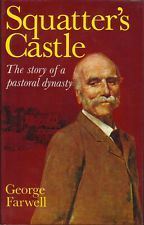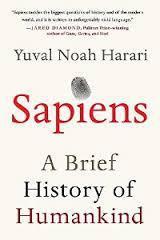The Forager and the Farmer
In 1839 colonial New South Wales the Legislative Council sent a questionnaire to all pastoralists asking for feedback on the usefulness or otherwise of any aboriginal labourers they employed on their land. In answer to the question – How could the ‘Native Blacks’ be induced to work harder – one respondent replied: ‘By cutting off their great toes. They could not then climb the trees for opossums. Two hours so spent or in fishing will supply them with all they want for the day; why then should they vex themselves with the drudgery of labour? They are not fools…’ The Council clerk’s handwritten response, scribbled on the front page, went, ‘As it conveys rather more insult to the Committee than information, I shall be authorised to exclude from those selected for publication.’

Published 1973 (image from Ebay)
This is a shame, as while it may have been a tongue-in-cheek response from the pastoralists (William Ogilvie and George Wyndham) it contained what seems to be a great truth: if it is possible to acquire in two hours enough food for a family to eat why does a farmer need to spend around fourteen hours a day doing the same?
I was thinking about this as I was listening to Radio 4’s featured Book of the Week, Sapiens: A Brief History of Humankind, by Yuval Noah Harari. Dr Harari, an Israeli historian, claims the agricultural revolution, which occurred roughly 10,000 years ago when hunter gatherers discovered wheat – or, more to the point according to Harari, wheat discovered the hunter-gatherer – and turned from foraging to farming, was a ‘fantasy’. That rather than improving our life-styles, by making us reliant on one not particularly nutritious plant, that was vulnerable to the weather and to pilfering, we turned from healthy people with lots of leisure time into stressed individuals who worry constantly about the future.

Published 2014 (image from Amazon)
I was also thinking about all this as I was reading The Timeless Land by Eleanor Dark, about the early days of colonial New South Wales, in which she shows the arrival of the Europeans from the point of view of both settlers/invaders and the settled/invaded. The assumed superiority of the first had nothing to do with any kind of superior intelligence (except they had firearms), rather the opposite. The supposedly civilised Europeans had a far harder time surviving in the Great South Land than the indigenous people who had lived there for upwards of 40,000 years. And yet in the mid 19th century any suggestion that the aboriginal people knew better, that they lived a far easier life than any pastoralist because they were ‘not labourers at all, and for the same reason that any other gentleman is not, viz that he can live without labour… They realise the philosophy that Diogenes only dreamt of, yet are no Cynics, rather Gymnosophists’ was considered not just a joke but gross insubordination.

Published 1940 (image from Amazon)
Still, that’s the thing about progress. There’s no going back, even if ‘back’ is a better place than forwards. If for some weird reason the Europeans had not arrived at the great south land until 2014 they’d have been probably been worse off now than they were in 1788. There are not many people left in ‘civilised’ Europe who can kill a moving animal with a gun. And the prospect of having to manage the land without machinery or telephonic communication is unthinkable. We’ve come a long way baby, further and further away from the stuff that made us what we are.
Committee on Land Bill, Notes and Proceedings, legislative Council 1839
William Ogilvie and George Wyndham, Squatter’s Castle: the life of Edward Ogilvie, by George Farwell, 1973.





